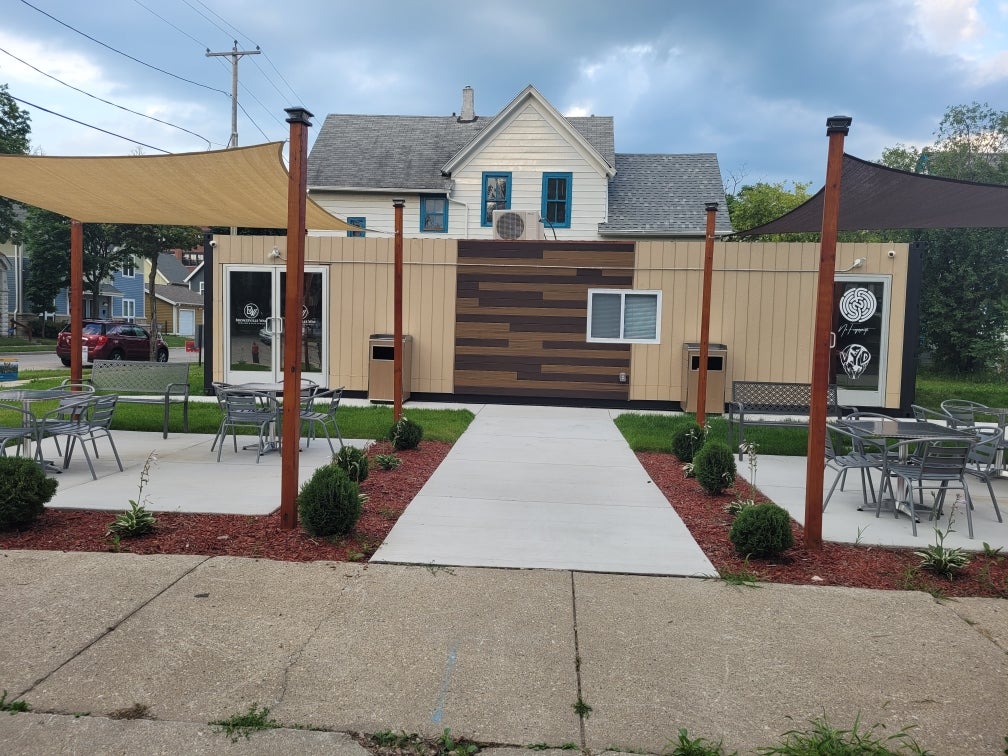The first annual State of Black and Brown address was given on February 10th at the state Capitol where legislators Lena Taylor and LaTonya Johnson stated that economic and health disparities between black and white populations make the state the worst to raise black children. We talk with one of the legislators about the issue. We also hear from a few guests from Artists Working In Education and discuss how schools handle literature classics that contain racial slurs.
Featured in this Show
-
State Lawmakers Decry Economic, Health, And Educational Disparities For Black And Latino Children In Wisconsin
During the first annual “State of Black and Brown Wisconsin” address, members of the legislature’s newly-established Black and Latino Caucus outlined the issues facing Black and Latino residents in the state. One of the top concerns centered on the disparities faced by Black and Latino children. Lawmakers pointed to unequal access to educational opportunities and healthcare, as well as high rates of youth incarceration at controversial juvenile detention facilities such as the Lincoln Hill School for Boys. State Senator LaTonya Johnson (D-Milwaukee) joins us to talk about her concerns and ways the state can address these issues.
-
Milwaukee Nonprofit Bringing Art To Underserved Neighborhoods Celebrates 20 Years
The Milwaukee-based nonprofit Artists Working in Education is celebrating its 20th year of connecting community artists with underserved neighborhoods.
One of their programs is the Truck Studio — which transports artists and supplies in four hand-painted, colorful vans to Milwaukee County parks and libraries — it’s a channel for the artists to host free, drop-in art programs for area children.
“It’s a really great opportunity for youth to express themselves and create art and take something home with them that hopefully they can recreate at home,” said Raina Johnson, donor stewardship and storytelling manager at Artists Working in Education.
Kelsey Cavin, assistant program director, center, reads to children at Carmen Playfield in 2017. All Truck Studio arts activities begin with a book. Photo courtesy of Artists Working in EducationThe program reaches all of the Milwaukee Public Library branches during the school year and about 19 Milwaukee County parks and playgrounds during the summertime. Each visit has a theme, and literary ties are often woven into the projects.
Both the libraries and parks have been longtime public partners of the program, Johnson said.
Lessons and projects to encourage creativity and inquisitiveness, while cultivating a sense of community, are cornerstones of the program, said Luther Hall, an artist with Truck Studio.
A young artist paints in a park in 2017. Photo courtesy of Artists Working in Education“The most important driver for me is that we’re giving kids the opportunity to express themselves and find outlets for expressing emotions like rage, anger, fear, love, friendship and things like that,” he said.
The founders of Artists Working in Education, Barbara Manger and Sally Duback, started the Truck Studio in 1999 as one of two main programs the organization operates.
What began with only one van and four sites has since expanded to a fleet of four vans – and currently fundraising for a fifth – that visits nearly 90 sites throughout Milwaukee each year.
Recently, one of the projects taught the kids how to make hats as a way of expressing themselves and instilling a sense of identity, Hall said.
“I learn so much more from the kids I work with at the libraries than I think any adult in a formal education setting could teach me,” Hall said. “They teach me to think outside of the box.”
Artists Working in Education employs 49 artists and has 65 volunteers who work in their programs that reach over 6,200 Milwaukee-area youth each year, according to their website.
The organization aims to build a pipeline of talent from high school to the college level through volunteer positions and internships, Johnson said.
Ariana Vaeth, another artist working with the Truck Studio program, seconded Hall’s sentiment and added that the program brings out confidence in the kids.
“It teaches young kids to think creatively, so making these art projects are really clever ways for us to get in conversation on their level, on their terms,” she said.
Lead Truck Studio Artist Laura Kolar, left, paints a rocketship with young people for a Space-themed Truck Studio visit in Rose Park in 2017. Photo courtesy of Artists Working in EducationArtists Working in Education is currently running a crowdfunding fundraiser to purchase a new van to have a larger presence at parks, playgrounds and summer concerts until the end of March with a goal of $7,500, she said.
The organization is funded by Milwaukee Public Schools Arts Internship Program, the Zilber Family Foundation, Northwestern Mutual and Milwaukee County Parks, Johnson said.
For the truck schedule, visit their website.
-
'Truck Studio' Brings Art To Underserved Neighborhoods In Milwaukee
Milwaukee non-profit Artists Working In Education (AWE) is celebrating their 20th year in 2018. We learn more about their ‘Truck Studio’ program that brings community artists and art projects to underserved neighborhoods, often in parks and libraries.
-
Do Classic Novels Containing Racial Slurs Belong In Classrooms?
The Duluth School District recently decided to remove The Adventures of Huckleberry Finn and To Kill a Mockingbird from its high school curriculum, citing the novels’ frequent use of racial slurs. It’s the latest in a long history of controversy over using works with offensive language in the classroom. An author joins us to talk about how racial language functions in these books, why we continue to debate them, and how teachers can talk about them with students.
Episode Credits
- Rob Ferrett Host
- J. Carlisle Larsen Producer
- Natalie Guyette Producer
- Dean Knetter Producer
- Sen. LaTonya Johnson Guest
- Luther Hall Guest
- Ariana Vaeth Guest
- Raina J. Johnson Guest
- David Bradley Guest
Wisconsin Public Radio, © Copyright 2026, Board of Regents of the University of Wisconsin System and Wisconsin Educational Communications Board.

